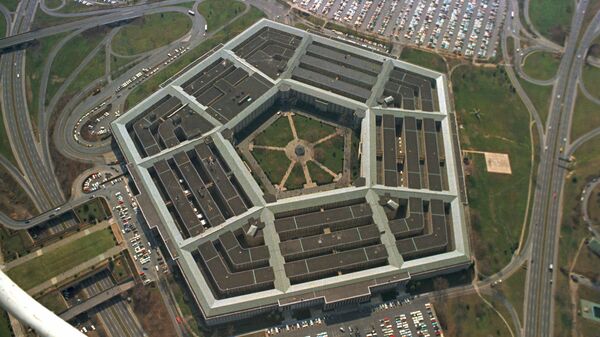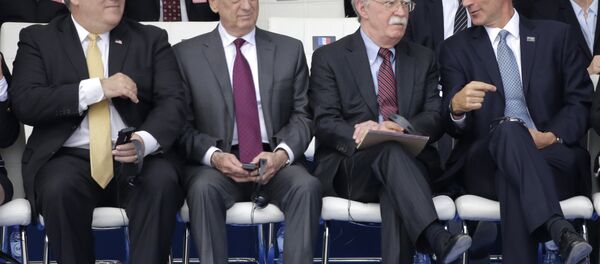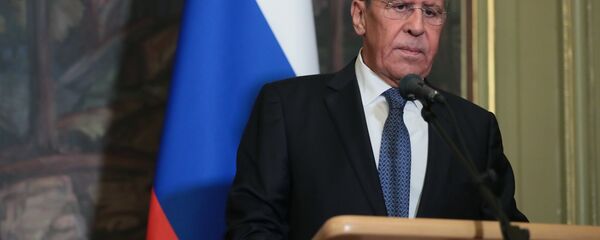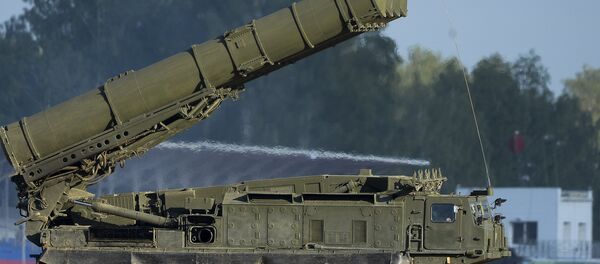Asked to assess the impact of the imminent transfer of Russia's S-300 air defense system to the Syrians on US and Israeli operations in and around Syria, Joint Staff deputy director Brig. Gen. Scott Benedict warned that it would increase the likelihood of "miscalculation."
"The introduction of more of these systems only serves to create more unstable conditions and the likelihood of miscalculation such as which we tragically saw earlier in the week with the Russian plane being shot down by the Syrians," Benedict said, speaking to US lawmakers on Wednesday.
"My greatest concern is that the more things we're putting in to this small area, particularly as we're starting to close in on the north part of Syria, the more dangerous the entire situation becomes because of the instability," the officer added.
Mission Priorities
In a tense exchange, Congressman Seth Moulton questioned Benedict on the US's strategic mission in Syria, suggesting that the administration seems to have conflicting priorities. "This week, [National Security Advisor] John Bolton suggested that the United States envisions a permanent presence in Syria to counter Iran, while Secretary [of Defense] James Mattis insisted our forces are only there to counter ISIS*," Moulton, a former Marine Corps officer, said.
Asked to explain, Benedict insisted that the US forces' role in Syria remains "to defeat ISIS," but added that the US is also engaged in "stabilization," which "can contribute as part of the leverage to eventually get to a political settlement."
Congressman Austin Scott had a question about the authorization required for the US Syria mission, asking assistant defense secretary of international security affairs Robert Karem whether the terrorists' presence in the country was sufficient for US military intervention.
"The idea that just because an organization by a certain name is in a country, that this gives us the ability to say, 'well because they're there, I've got the authorization to go do whatever I want to in that country' — I'm very concerned about the authorizations, and I think it deserves further discussion," Scott said.
US 'Defense of Al-Qaeda'* in Syria
Karem was also grilled by representative Tulsi Gabbard about why the US had threatened to launch a military operation against Damascus if the latter starts an operation to clear the Syrian province of Idlib of tens of thousands of al-Qaeda-linked terrorists. Idlib, she said, has been estimated by General Joseph Dunford to contain some 20,000-30,000 jihadists.
"How is this not a complete kick in the face and an insult to the American people, all of those lives that were lost on 9/11, first responders, our troops, their families, everyone who has sacrificed so much?" the Iraq War veteran congresswoman added.
Karem disputed Gabbard's figures and claimed that Syria and Russia were responsible for the terrorist presence in Idlib.
"There is no dispute that Idlib has become a hornet's nest for multiple terrorist organizations. Regrettably, this is the product of the Russian and regime approach to consolidating control on the ground in Syria. They have used the [de]escalation zones and locally negotiated deals to purge areas of Syria, and have used Idlib as a dumping ground," Karem said.
S-300s
* AKA Daesh, a terrorist group outlawed in Russia.
* A terrorist organization outlawed in Russia and many other countries. Held responsible for the 9/11 terrorist attacks, which killed nearly 3,000 Americans in New York, Washington, DC, and Pennsylvania.





